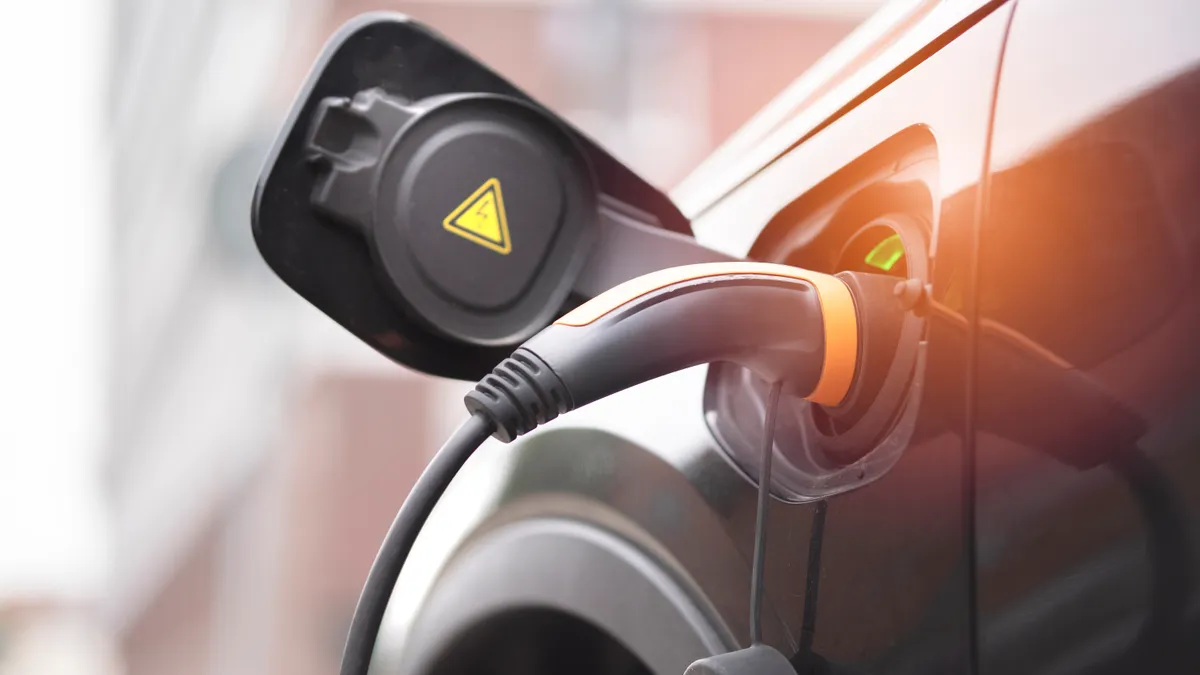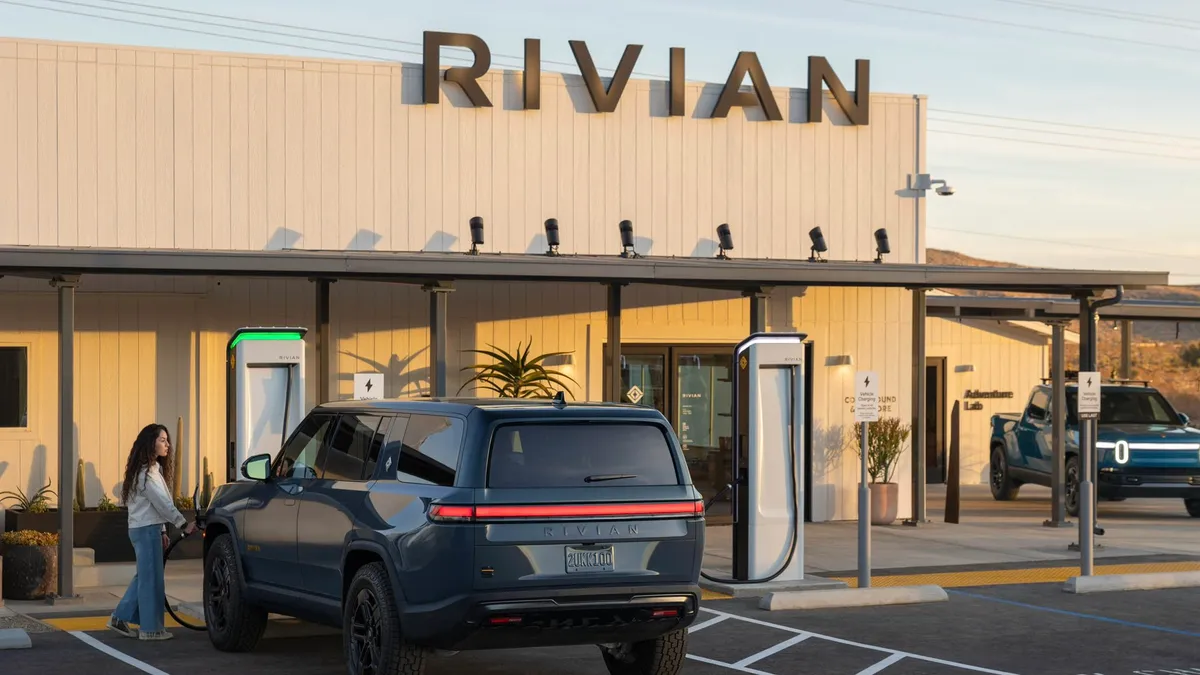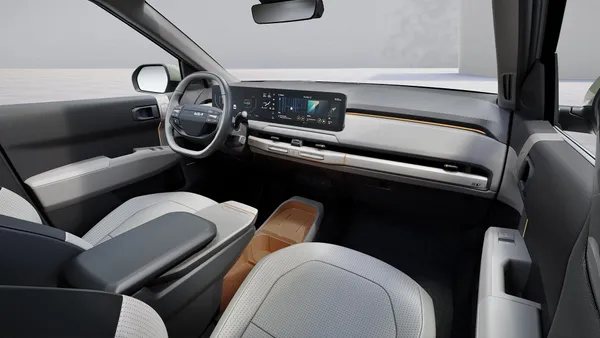Dive Brief:
- While disruptive pressures from electrification and new technology continue to affect the automotive industry, disruption declined for the second year in a row, according to the 2024 AlixPartners Disruption Index.
- The index score, which surveyed 310 automotive executives last year, fell from a high of 78 in 2022 to about 75 last year and again to 72 this year. To arrive at a score, the index compares the number of simultaneous disruptions affecting industries to the impact of those disruptions based on survey responses.
- As of the 2024 report, disruptions in the automotive industry have shifted from external, uncontrollable pressures to “controllable challenges,” said Mark Wakefield, global co-leader of the automotive and industrial practice at AlixPartners, in a statement.
Dive Insight:
The automotive industry is experiencing several transformative shifts as product lines electrify and add features enabled by advanced software.
Even facing massive disruptions, more than half (64%) of surveyed automotive executives said they saw new business models as opportunities for their companies. However, optimism varied by region. For example, European and Chinese executives were more likely to view disruptive technologies like software-defined vehicles and artificial intelligence as opportunities. In contrast, executives in the U.S. were more likely to consider them threats.
“Although disruptions like the chip shortage may be behind the auto industry, that certainly doesn’t mean life is getting any easier,” said Wakefield.
Still, a third of surveyed automaker executives and roughly 40% of automotive supply executives predict “significant” disruption in the year ahead, per a press release published last week that shared further insights from the report.
“From the massive technical and development process changes coming with software-defined vehicles to the recent uncertainty regarding electric-vehicle sales growth, companies need to understand the shifting environment and act decisively," Wakefield added.
The report highlighted the Chinese automotive industry as “a template for how to thrive in today’s industry” by taking advantage of disruptive forces.
The report noted that EVs have taken off in China, and automakers have successfully experimented with competitive pricing for new technologies, such as semi-automated vehicles. Indeed, more than half of all EVs globally are in China, according to the International Energy Agency. In the fourth quarter of 2023, Chinese company BYD overtook Tesla as the world’s top-selling EV company.
Many industries worldwide are facing disruption from new technologies. Overall, the AlixPartners Disruption Index surveyed 3,100 executives in 11 countries and 10 industries. Across industries, leaders cited action and follow-through as the most important traits for responding to disruption, according to AlixPartners CEO Simon Freakley.
"Disruption is the new economic driver," Freakley said in the report. "Winners in this new age will be those who are prepared to meet its challenges and seize its opportunities."
The report highlighted eight categories in the automotive industry as leading disruptive forces: changing consumption patterns, ESG regulation, electrification, new competition and business models, volumes, supply chain shortages, raw materials and energy, and autonomous vehicles.
Given the rapid changes in the industry, most surveyed automotive executives also said it was increasingly difficult to determine which disruptive force to prioritize when planning business strategy.
Edwin Lopez contributed to this story.











